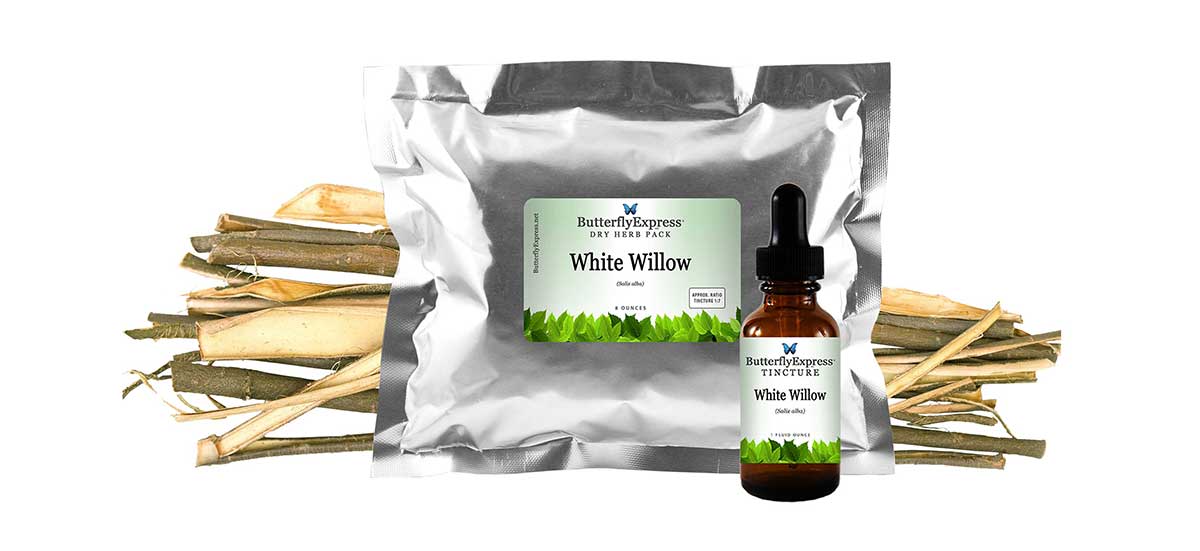|
White Willow Salix alba PART USED: Bark PROPERTIES: Anti-inflammatory, Febrifuge/Sudorific SYSTEMS AFFECTED: Nerves, Muscles, Reproductive POSSIBLE USES: headaches, low back pain, menstrual cramps, fever, pain of tendonitis or bursitis This same information is repeated elsewhere in this book, but I felt it was important enough to put it here. The use of White Willow has been documented way back in time in Europe, Asia, and Egypt. The Greek physician Hippocrates wrote about the medicinal properties of White Willow in the 5th century B.C. In 1829, some scientists in Europe published a report that the effective ingredient in White Willow was a compound called salicin. Salicin is converted in the body to salicylic acid. Extracting the salicin from the bark proved to be expensive and time consuming, and it wasn’t long before scientists created a synthetic form of salicylic acid. It became immediately apparent that the synthetic version was very hard on the stomach. At therapeutic doses, too many people developed stomach ulcers and bleeding. A German company, Bayer (perhaps you recognize the name), eventually developed a synthetic, less harsh derivative of salicylic acid and mass produced it under the name Aspirin. Although claims were made that it was much less irritating, Aspirin is still known all these years later for irritation to the stomach lining. So, why use the synthetic form when God’s own remedy is readily available? I don’t have an answer for that question! Besides reducing fever, White Willow is strongly anti-inflammatory. Research has shown that the salicin in White Willow is not converted to salicylic acid until after it leaves the stomach, thus the salicylic acid does not irritate the stomach lining or anything else. Clinical trials have repeatedly shown that natural Willow Bark is more effective than aspirin because of other active compounds that are found in the bark but processed out of any drug made from the bark and not present at all in the synthetic versions. Several studies show that Willow is more effective at reducing pain from osteoarthritis than placebos. In a small study of people with osteoarthritis of the neck or lower back, those who received the Willow Bark experienced significant improvement in symptoms compared to those who received the placebo. A similar study of 78 people hospitalized with osteoarthritis of the knee or hip joint found that people who received Willow Bark had significant pain relief compared to those who received placebos. White Willow often has a long list of cautions in herbal references. Most of these cautions are based on what you would expect from Aspirin (synthetic salicylic acid). I have used White Willow Bark for years and have never seen (or heard of from other herbal people) any negative effects whatsoever. ©Copyright Butterfly Expressions 2020, 2024 |

Purchase White Willow Products Here |

- Butterfly Expressions LLC
- Empowering Yourself
- OFFICIAL SITE